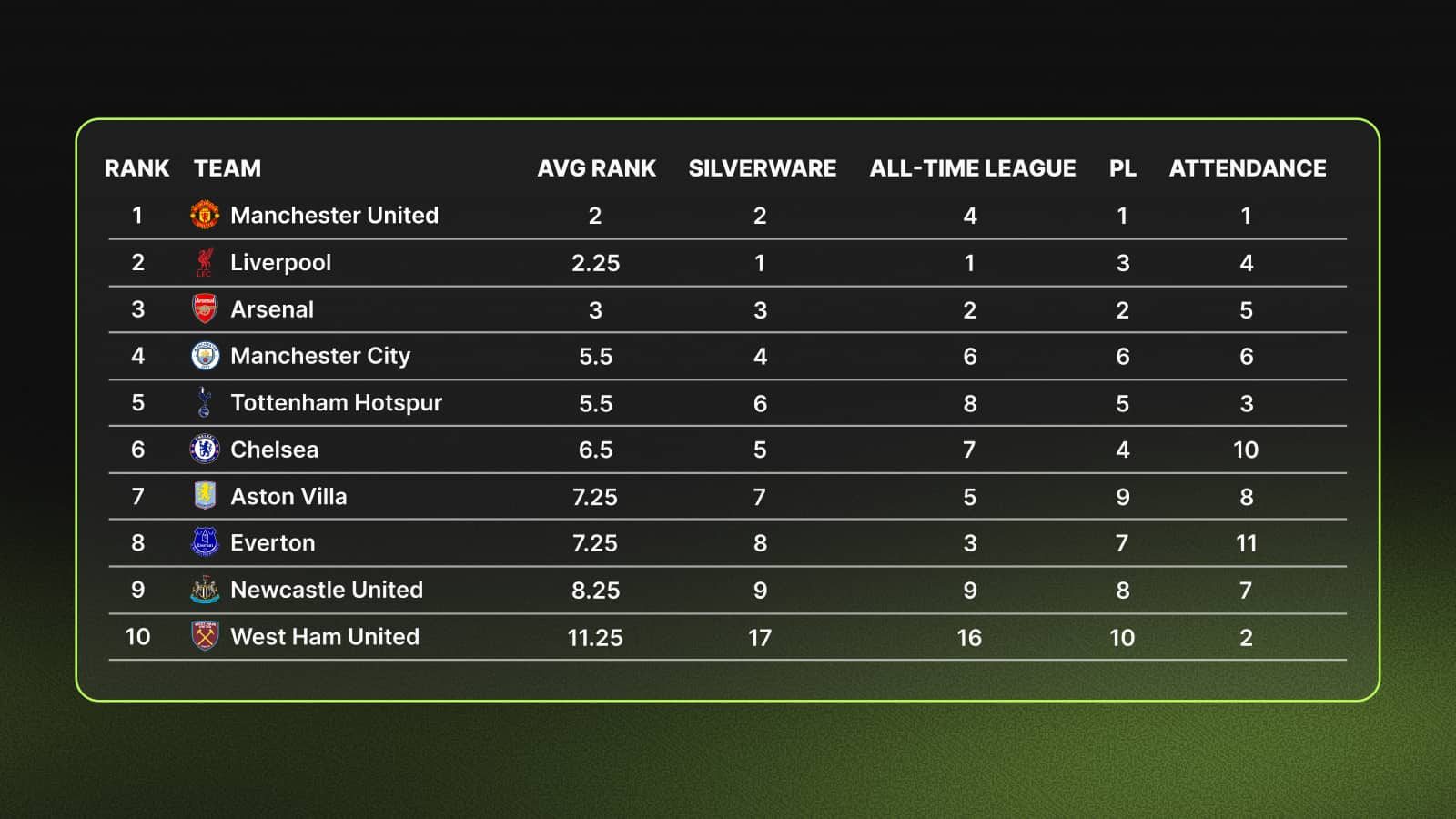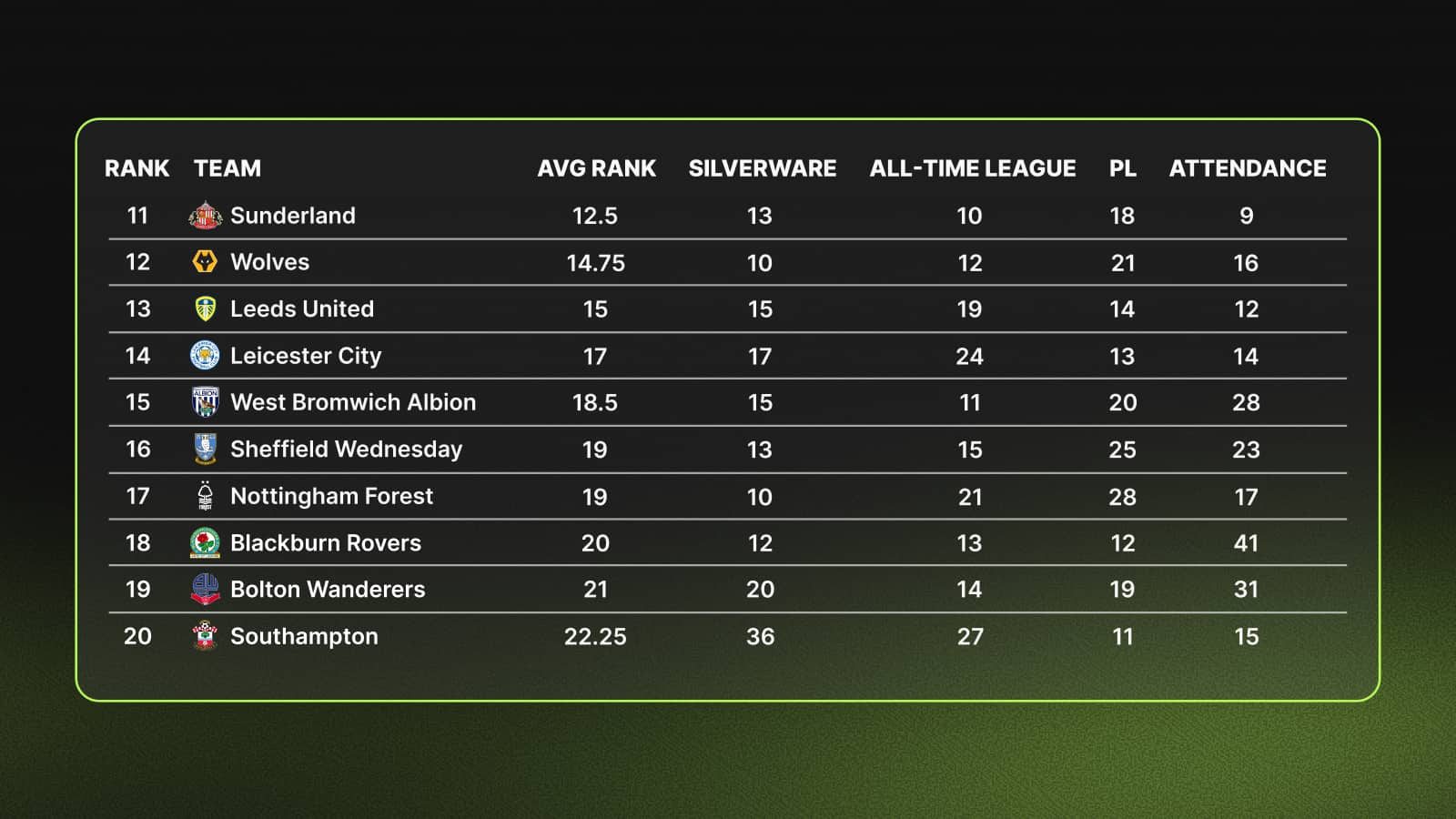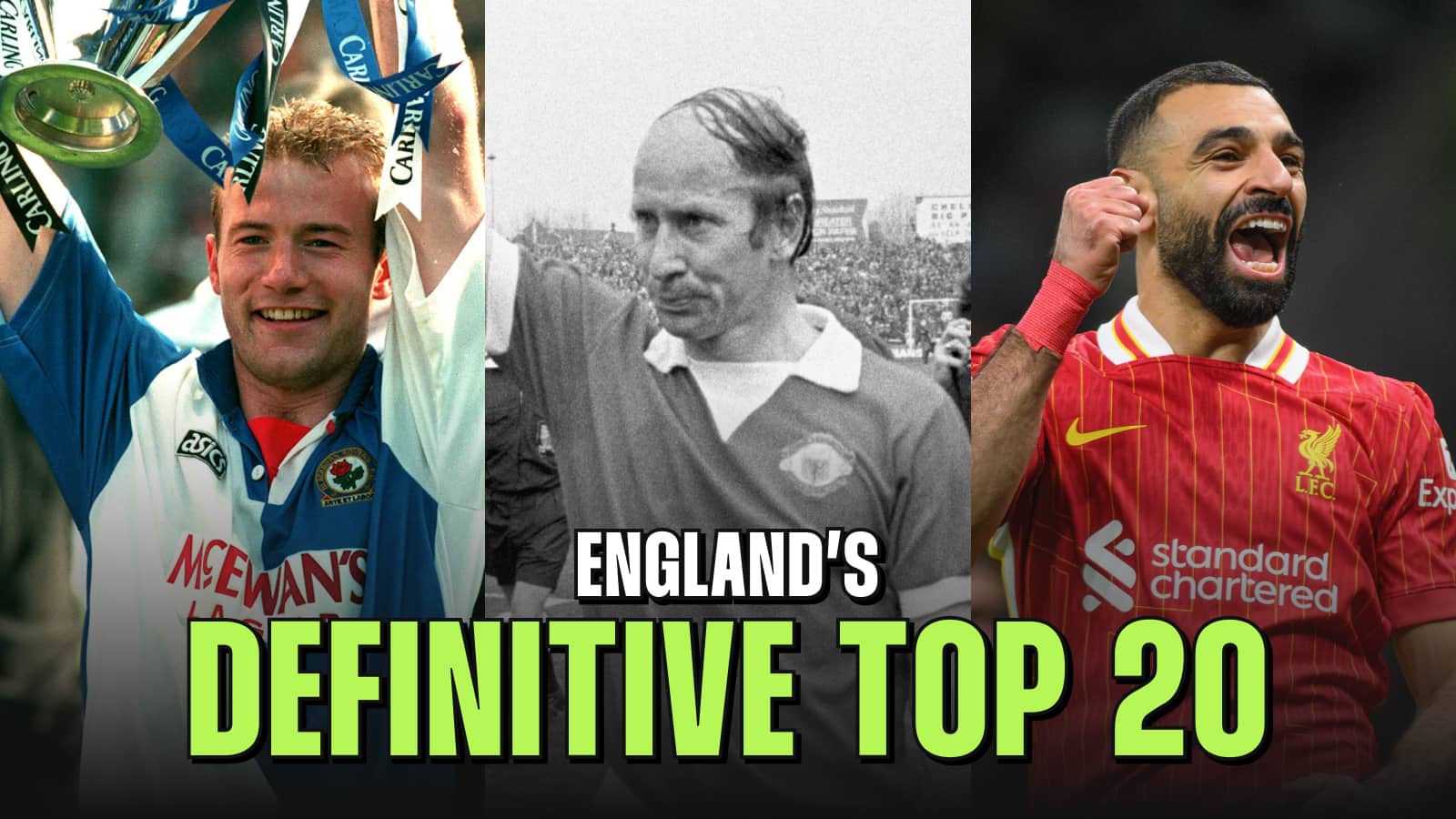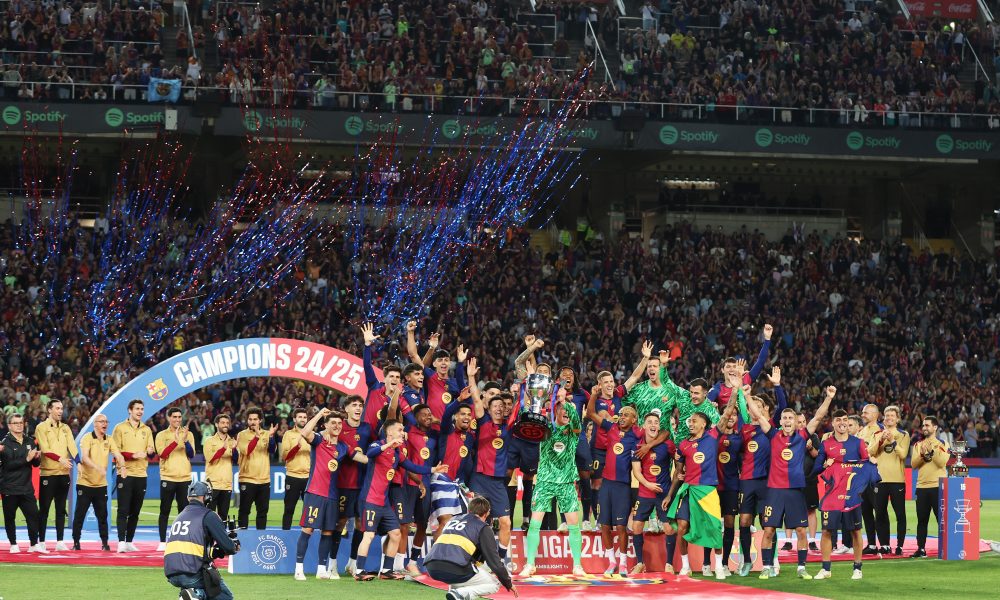Countless hours across the country have been spent arguing which clubs are ‘bigger’ than others and who ought to make up a dream 20-team Premier League of the rightful heavyweights.
We’ve decided to put together a complex statistical algorithm to put an end to the mother of all pub debates. Who are bigger – Manchester United or Liverpool? Arsenal or Chelsea? Should Leeds United and Nottingham Forest make it into the all-time top 20 after their wilderness years?
Here’s your definitive, completely objective and scientific ranking of the 20 biggest clubs in England.
Criteria
To create our completely objective, scientific table, we’ve put together a mathematical system with three key criteria:
1. Historical performance
We’ve split this two ways, so there’s an extra weighting and value added for the modern Premier League era.
We know that football didn’t begin in 1992 and we wanted to reflect that, meaning the likes of Sunderland (10th), West Brom (11th) and Derby County (17th) get their props for their performance in the rich 100+ year history of English football’s top flight.
However, we also recognise that football is a different beast since the dawn of the shinily rebranded Premier League (arguably sadly, depending on your point of view) and felt that was also worth recognising.
For example, while Manchester United are surprisingly only 4th in England’s all-time top-flight table, they still lead the way in the overall Premier League table since 1992.
The Red Devils’ modern-day period of domination is reflected in the overall standings.
2. Silverware
Football is all about glory. What good is finishing second every season if you don’t have anything tangible to show for it?
There’s naturally a lot of overlap between the best-performing clubs in the league, both historically and in the modern Premier League era, but making that count to lift shiny pots is worthy of extra recognition.
For example, Liverpool are both top of English football’s all-time league table and the silverware charts.
Hardcore Kopites might argue that’s all that matters, and they’d certainly have a point, but from our algorithm, they’re not quite top of the tree due to their average attendance (4th) and Premier League performance (3rd).
Arsenal (3rd), Manchester City (4th) and Chelsea (5th) are among the clubs rewarded for their history of lifting silverware, as are Aston Villa (7th) and Everton (8th).
3. Average attendance
This one’s self-explanatory.
We’ve included each team based on where they ranked for average attendance in 2024-25.
Manchester United (top) and West Ham (second) do particularly well out of this when it comes to their overall average.
On the other side of the same coin, Blackburn Rovers take a serious hit from only having the 41st highest average attendance in the country last term.
Blackburn rank 12th for silverware, 13th in the all-time top-flight standings and 12th in the all-time Premier League standings.
Get Ewood Park selling out again and they’d shoot up from the relegation zone and comfortably into midtable.
Honourable Mentions
The clubs who just miss out on making our top 20 are Derby County, Middlesbrough, Coventry City, Stoke City, Burnley and Fulham.
Consider that your Championship promotion-chasing top six… which sounds about right, doesn’t it?
Elsewhere, Brighton & Hove Albion may now be an established top-flight force but they’re not quite troubling our top 20.
The Seagulls ranked 13th in the country for highest average attendance last season and are 26th in the all-time standings.
But they pay the price for never having won a trophy and sitting as low as 47th in the all-time top-flight standings.
It’s a similar story for Brentford, who are miles off.
The Bees have never won any silverware, are only 48th in the all-time standings, 41st in the Premier League standings and were only 38th for average attendance (behind the likes of Bradford, Huddersfield, Cardiff and Hull).
The 20 biggest clubs in England


READ NEXT: The all-time English league table: Liverpool top, Glossop North End bottom
TRY A QUIZ: Can you name every club to ever appear in the Premier League?



